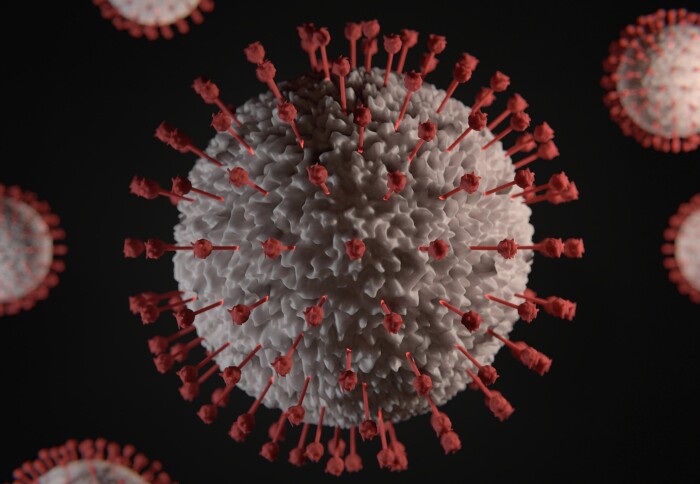Study shows real-world COVID-19 vaccine response in vulnerable patient groups

Data from the OCTAVE study show for the first time COVID-19 vaccine responses for people with immunocompromised or immunosuppressed conditions.
A UK study of the real-world effectiveness of COVID-19 vaccination confirms that patients with weakened immune systems may not gain full protection from two doses, and some have an increased underlying risk of severe infection and death from COVID-19.
The findings, which come from the OCTAVE study, reveal that some clinically-at-risk patients did not have full protection from two doses of the same COVID-19 vaccine. However, people with conditions which impair the immune system such as cancer, inflammatory arthritis, kidney or liver disease may be at increased risk of the severe complications of COVID-19 infection.
The research, published in Nature Medicine, sheds light on important data on infection rates, disease severity and deaths in patient groups with impaired immune systems, who were studied up to a year after their first vaccination.
"This study demonstrates that not all ‘vulnerable’ or ‘immunocompromised’ people respond the same way to SARS-CoV-2 vaccines." Dr Michelle Willicombe Department of Immunology and Inflammation
The data covers the time from 2021 to mid-2022 and includes patients infected with Alpha, Delta and Omicron strains of SARS-CoV-2. However, the study does not estimate the impact of third and fourth vaccinations which have since been offered to patients in the group studied.
The findings show that while COVID-19 infection rates were low in most at-risk patient groups, the risk of severe disease and death from infection was high in some groups, especially in patients with kidney disease. This was particularly the case during the Delta wave of the pandemic. The data also show that while Omicron, now the dominant SARS-CoV-2 strain worldwide, saw a rise in infection rate among at-risk patients, fewer of them became seriously ill or died.
Dr Michelle Willicombe co-lead of the Imperial College London part of the trial from the Department of Immunology and Inflammation said: “This study demonstrates that not all ‘vulnerable’ or ‘immunocompromised’ people respond the same way to SARS-CoV-2 vaccines. Specific groups of patients such as those with kidney transplants or kidney disease need ongoing consideration and protection measures against COVID-19 infection.”
Immune insights
The OCTAVE Trial is a collaborative research project funded by the Medical Research Council (MRC) involving groups in the Universities of Glasgow, Birmingham, Oxford, Liverpool, Imperial College London and Leeds Teaching Hospitals NHS Trust.
More than 2000 patients were enrolled from 20 hospital sites across the country. The study used start-of-the-art immune tests on blood samples taken before and/or after COVID-19 vaccinations, as well as infection and severity data on patients to better understand the impact of low vaccination response in these groups.
Most SARS-CoV-2 infections in the study occurred more than six months after the second vaccination and were predominately in patients with a kidney transplant, inflammatory arthritis and Crohn’s disease. The majority of these infections were also first-time infections.
Most infections were mild in severity, however 9.8% of infections were cases which required hospitalisation or resulted in death, and these occurred mostly in patients with kidney disease.
Government estimates suggest that around 500,000 people have an immune suppressive disease in the UK – a significant group which may be more at risk of severe COVID-19 infection if not fully protected by vaccination.
Dr Michelle Willicombe is the co-lead of the Imperial College London arm of the trial, together with Dr David Thomas. They investigated the effectiveness of the COVID-19 vaccine in people with kidney disease.
People who have liver cirrhosis are another group of patients for whom there has been concern regarding immune response to COVID-19 vaccines, given both that cirrhosis itself can weaken the immune system, and that a proportion of patients with cirrhosis require immunosuppression.
"The study’s key strengths include identifying the small number of patients who may not respond to the vaccines, enabling healthcare providers and policy makers to make the best decisions to protect these groups of people." Professor Iain McInnes University of Glasgow
Members of the Department of Metabolism Digestion and Reproduction’s Liver Unit based at St Mary's Hospital, including hepatologists Dr Benjamin Mullish and Dr Pinelopi Manousou, and research nurses Celia Moore and Gary Hahn, also contributed to the study.
The team analysed the immune responses of patients with cirrhosis receiving COVID-19 vaccines; this included patients who had developed cirrhosis from different causes, helping doctors and scientists assess whether, for instance, patients with alcohol-related liver disease respond similarly to COVID-19 vaccines as patients with autoimmune liver disease.
Professor Iain McInnes, lead of the OCTAVE trial, and Vice Principal and Head of the College of MVLS at the University of Glasgow, said: “The OCTAVE study has provided vital insights into the effectiveness of SARS-CoV-2 directed vaccines in some of our most vulnerable patient groups. The study’s key strengths include identifying the small number of patients who may not respond to the vaccines, enabling healthcare providers and policy makers to make the best decisions to protect these groups of people. Importantly the study has also been able to reassure us that the majority of our immunocompromised patients in the UK have been protected from severe COVID-19 by the vaccination programme.”
Adapted from a press release from the University of Glasgow
Article supporters
Article text (excluding photos or graphics) © Imperial College London.
Photos and graphics subject to third party copyright used with permission or © Imperial College London.
Reporter
Ryan O'Hare
Communications Division
Meesha Patel
Faculty of Medicine Centre
Benjie Coleman
Department of Surgery & Cancer